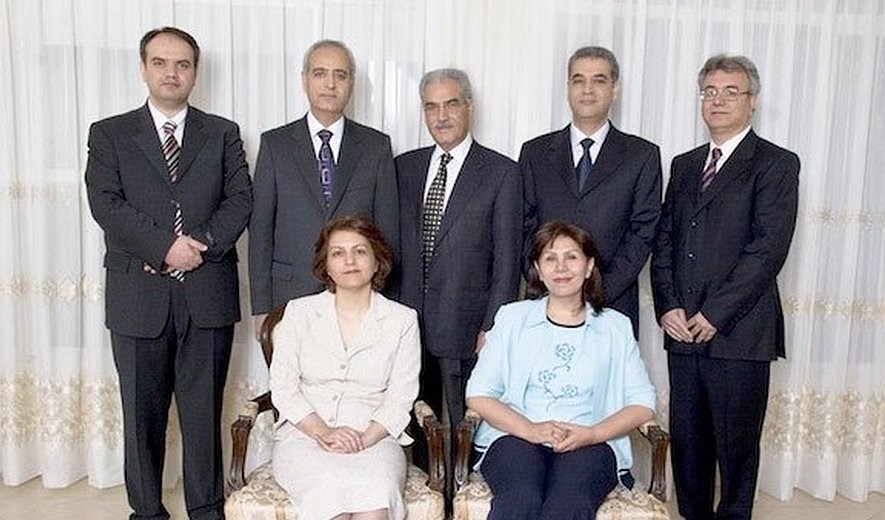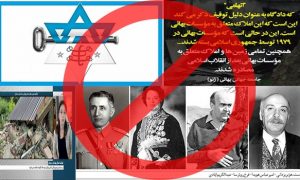On Shahrivar, 3, 1400, The Baha’ism organization asked the international foundations of entering into the subject of the 6 Baha’i lands confiscated in Semnan province. The organization thought it can be hidden behind its members by changing the name of spying and illegal organization and by changing the names if its illegitimate properties.
The Baha’ism organization has issued a statement against the Islamic Republic of Iran dated Shahrivar, 3, 2021 and asked for supporting the Baha’is of Iran by the universal community. Some parts of the statement are as follows:
“A wave of economic repression against the Iranian Baha’is has begun by confiscating 6 Baha’is land in Semnan province… The Baha’i universal community has written several formal letters to the special reporters of the United Nations organization and ask it and other international activists to meddle with this issue and ensure that the Iranian government doesn’t deprive Baha’is of their properties[1].”
However, there are several notes to criticize and investigate the Baha’ism organization claim
- The Baha’ism organization considers the accusation cited by the court as the reason for the seizure of these lands to belong to the Baha’i institutions and claims for the dissolution of these institutions in 1983. Although the Iran spiritual assembly claimed sending a letter to the country prosecutor’s office: “All Baha’ism centers in Iran are cancelled, so nobody is recognized in Iran as Baha’i. [2]” however, it has never kept its promise, at all.
Following the arrestment of the Baha’i organization agents for espionage in 1387 S.H., the Baha’ism leadership foundation wrote a new letter and confessed its illegal activity in 1362 S.H. and said: “After a while, to answer the spiritual and social demands of the 300-people community of the Baha’is of Iran, the Yaran Iran group started its activity in an international level and the servants group did it too in local one.[3]”

Consequently, the Baha’i organization thought it could keep its properties by changing the assembly and properties names in Iran.
After mentioning some parts of the Baha’i plunders headed by Hojabr Yazdani, Hussein Fardoust writes: “Hojabr Yazdani became a power supported by Ayadi and bought extensive lands in Bakhtaran, Mazandaran and Isfahan and etc. Then I figured out that all those money belonged to Baha’is and those interactions were done for them with his name.[4]”

In the statement, the reason for confiscating these lands has been mentioned based on article 49 of the Constitution. A law which points to the disrespect of property resulting from usurious transactions, abandoned lands, principle rights or properties belonging to no particular person, misuse of endowments and contracts and the governmental transactions.[5]

As we read in Article 4: “Each kind of transfer of properties which is the subject for principle 49 of the Constitution to evade the provisions of this law is null and invalid after proving. The transferee and transferer will be sentenced if both are aware.

Now, how does the Baha’ism organization stand against the country Constitution frankly and intrigue the international foundations against the government and introduce itself shamelessly as the sectarian representative that considers obeying the rulers as necessary and forbid each kind of opposition against them.
If we accept the lies and blackmail of the Baha’i organization in pretending to be oppressed for its followers in Iran (such as being deprived of working and confiscating their properties_ and we consider these limitations for the member not for the Zionistic organization, they must be straved!
[۱] The press statement of the Baha’i universal community, dated August 25, 2021 A.D
[۲] Zahed Zahedani, Baha’is in Iran, Bija: The center for the documents of the Islamic Revolution, 1381 S.H., pp. 307-317.
[۳] A open letter of the universal community of Baha’ism to the general prosecutor of the country, dated: 1387/12/14 narrated by: Jawad Nawaeeyan: The spider webs, Mashhad: Khorasan artistic and cultural institute research office, 1394, p. 72.
[۴] Hussein Fardoust, The rise and fall of Pahlawi kingdom, Bija: Ettela’at, 1370 S.H., Vol. 1, p. 375.
[۵] The law for the method of executing the principle 49 of the Constitution of the Islamic Republic of Iran, date of approval: 1363/05/17, the center for the researches of the Iranian Parliament.






